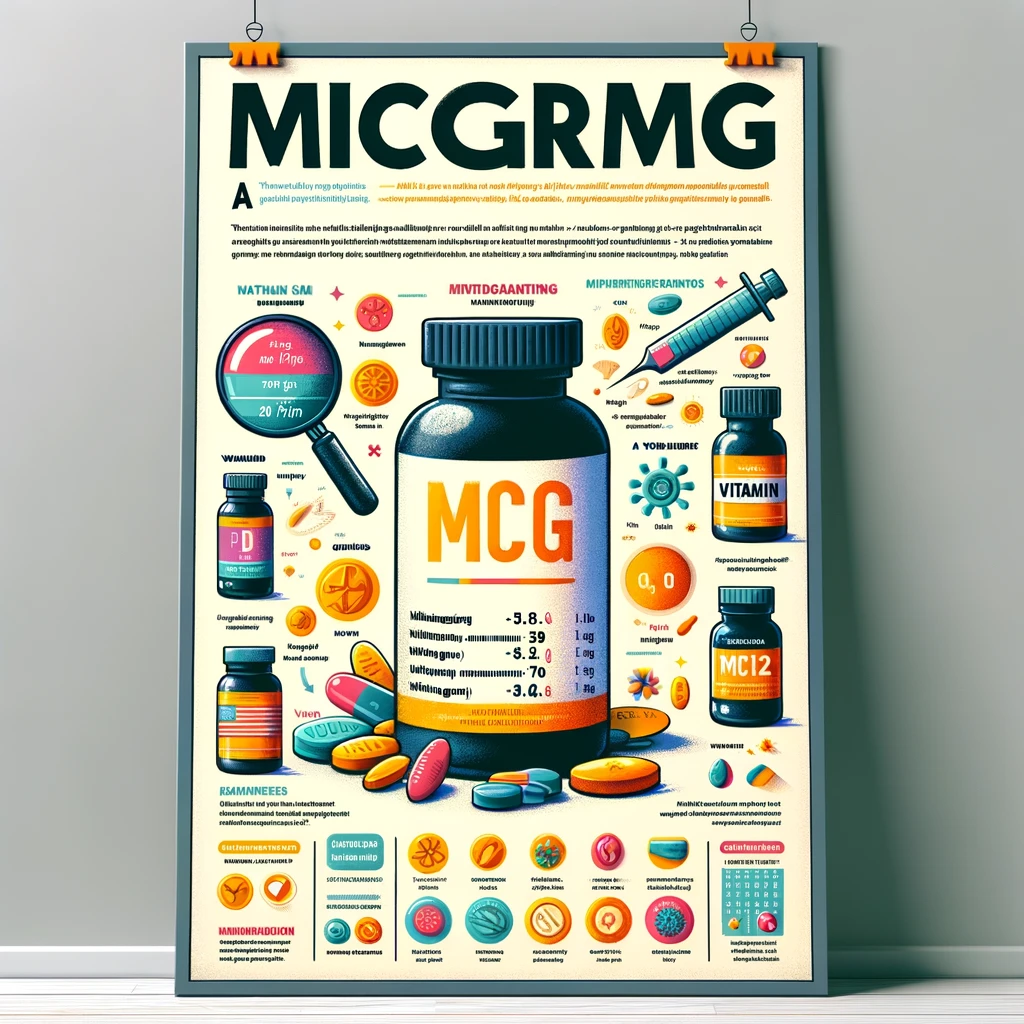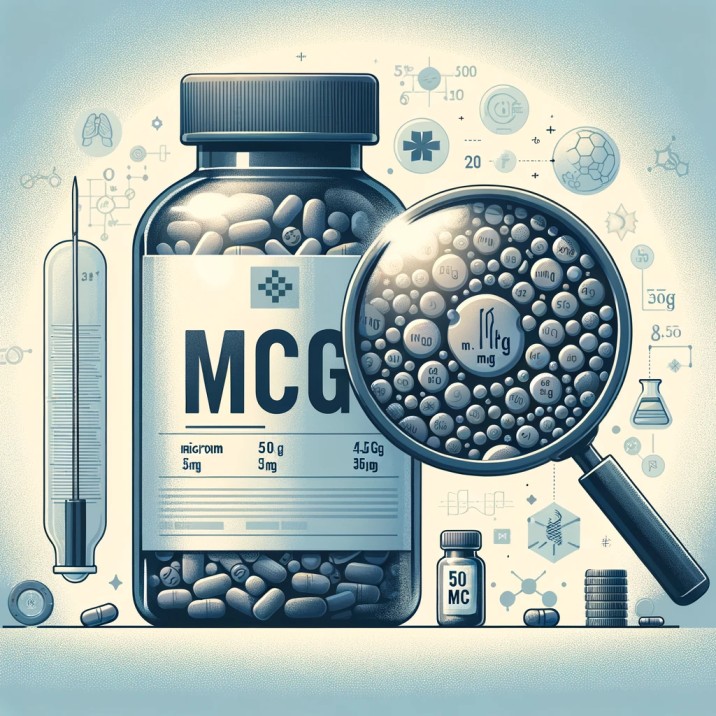We have a short answer for What does mcg mean on a vitamin bottle? “mcg” on a vitamin bottle stands for microgram. It is a unit of measure in the metric system that represents one-millionth of a gram. This unit is commonly used to indicate the quantity of vitamins, minerals, or other substances in a supplement where only a very small amount is required for the recommended daily intake. For example, vitamins like Vitamin D or B12 are often measured in micrograms because they are needed in very small quantities by the body.
A common unit of measurement seen on these labels is “mcg,” which stands for microgram. But what does this really mean, and why is it important? This article aims to demystify the term and explain its significance in the context of dietary supplements.

What is a Microgram?
The term “mcg” is an abbreviation for microgram. A microgram is a metric unit of mass equal to one-millionth of a gram. To put it into perspective, a microgram is to a gram what a penny is to $10,000. It’s a very small unit, used to measure equally small quantities of substances.
Why Use Micrograms in Vitamin Supplements?
Vitamins and minerals are required by our bodies in varying amounts. Some nutrients, like calcium and magnesium, are needed in larger quantities, often measured in milligrams (mg). However, others, like certain vitamins (D, B12) and trace minerals, are needed in much smaller amounts. These are where micrograms come into play.
Measuring these nutrients in micrograms ensures precision and safety. For instance, getting too much of certain nutrients, like Vitamin A or D, can be harmful, so precise measurement is key.
Decoding the Label
When you see “mcg” on a vitamin bottle, it indicates the amount of a particular nutrient in each serving. For instance, if a vitamin D supplement label states “50 mcg,” it means each serving contains 50 micrograms of vitamin D.
The Importance of Micrograms in Daily Nutrition
While the amounts might seem negligible, these microgram-level nutrients play significant roles in our health. For example:
- Vitamin D: Essential for bone health, immune function, and more.
- Vitamin B12: Crucial for nerve function, red blood cell formation, and DNA synthesis.
- Iodine: Important for thyroid function, which regulates metabolism.
Understanding RDI and Micrograms
The Recommended Daily Intake (RDI) of nutrients is often listed in micrograms for those required in smaller amounts. It’s important to align your intake with these recommendations, which are carefully set to meet the needs of the average person.
The “mcg” on a vitamin bottle stands for microgram, a unit of measure for quantifying vitamins and minerals needed in very small amounts. Understanding this term is key to navigating the world of supplements and ensuring that you’re getting the right amounts of these crucial nutrients. Always remember, when it comes to vitamins and minerals, more isn’t always better, and precision in measurement is key to maintaining good health.


